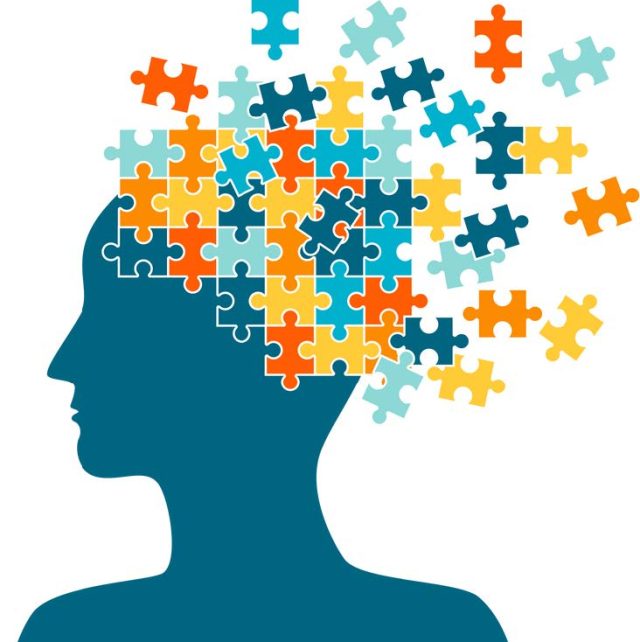By: Suzanna Stevanoski, OBI Intern, Operations
Sharing data on a large-scale requires the creation of a highly sophisticated system, one that allows many researchers to connect, manage, protect, and standardize data. That’s why OBI is finding innovative ways to unite researchers in pooling their expertise and resources to achieve greater impact than they could have achieved in isolation.
Most people think data sharing is easy, however it can be more difficult than it appears. There is a process behind data sharing that most people do not know about. It involves collaboration among a diverse network of stakeholders who are committed to advancing progress in data sharing and their willingness to establish and adopt a common framework.
You might be asking yourself ‘why share research data in the first place’? There are a number of benefits of data sharing. Data sharing allows scientific inquiry, encourages diverse analysis, promotes new research, supports previous studies/published literature, educates researchers, and initiates subsequent exploration. Many different groups benefit from data sharing including funding agencies, the scientific community, patients and the public at large.
OBI seeks to maximize provincial resources and establish Ontario as a world leader in neuroscience. To help realize this goal, OBI has brought together researchers, clinicians, industry partners and patient advocacy groups to collaborate on five research programs focused on: epilepsy, cerebral palsy, neurodegenerative disorders, depression, and neurodevelopmental disorders. The creation of these programs resulted in an unprecedented opportunity for Ontario’s neuroscience community—an opportunity to share neuroscience data in a way that was never-before-possible. Under its mandate to help brain researchers share their data, OBI developed Brain-CODE—an extensible large-scale informatics platform that manages the acquisition, storage, processing and analytics of multidimensional data collected from patients with a variety of brain disorders.
Brain-CODE has seven core principles that help facilitate research and data sharing. These seven principles include:
(1) Security. OBI has been designated a Privacy by Design Ambassador by the Information and Privacy Commissioner of Ontario. This means that Brain-CODE has forward-thinking measures to ensure patient privacy and data security. Data sharing is difficult because there a number of safeguards that need to be put in place to protect patients’ personal health information. Brain-CODE adheres to the highest levels of data privacy and security. Examples of privacy-protection methods that are in place include encryption and de-identification tools that remove any identifying information such as birthdate, and de-facing of images, where any facial features are removed from imaging scans to ensure patient privacy and confidentiality.
(2) Tiered open access. Brain-CODE has conditional, controlled release of data that is segregated into three secure zones. Zone 1 data is stored in a controlled environment and only researchers collaborating on the study have access to it; Zone 2 is the place where data that does not contain personal health information and has been de-identified is held for long-term storage; and Zone 3 allows for other researchers to access the data stored there once they have received approval from OBI’s Data Access Committee and the Research Ethics Board.
(3) Shared infrastructure. Brain-CODE is an extensible informatics platform to manage multidimensional data for a variety of brain disorders. When conducting research studies, there are many unforeseen costs related to data storage and analytics. A platform like Brain-CODE provides the necessary infrastructure to bypass some of the costs and increases research efficiency by allowing many researchers to assess the same data.
(4) Standardization. Data sharing allows for collaboration and sharing of information among researchers using different data modalities (e.g. clinical assessments, imaging and molecular). This collaboration facilitates connections between researchers studying the same topic. For example, epilepsy researchers doing clinical studies can share their data with epilepsy researchers who focus on genetics. Brain-CODE has established common data elements (CDEs) for enhanced data comparison. The CDEs allow for consistency in data collection across studies, improved quality of the data collected, and increased opportunities for sharing and cross-study analysis. Data standardization also maximizes the value of each individual’s participation in research. With the right security and privacy protocols, one person’s data can provide insight to an infinite number of studies.
(5) Federation. Federation is the seamless linking across databases to augment individual datasets and enrich analytics. Not only does Brain-CODE federate its internal databases but it can also link to external databases to take advantage of existing data, such as administrative health data and other research datasets. The main point of federating data is to get more out of your data by increasing its value. An example of this is when a researcher collects data from a patient they can access data about the same patient through other linked databases to get more information on those patients’ hospital records or doctors’ visits.
(6) Health impact. OBI tries to amplify research outcomes by facilitating hypothesis-driven research. Brain-CODE is one of many platforms which facilitate data sharing and discovery but it’s unique in its ability to collect a wide range of comprehensive data for over 15 different brain disorders. Some amazing breakthroughs have been made in cancer research as a result of large-scale data sharing. Sage Bionetworks has developed an informatics platform called Synapse to support the large-scale pooling of data. As a result of breast cancer data sharing, Synapse has been able to identify a number of biomarkers. This would not have been possible without large-scale pooling of data. OBI aims to do the same for neuroscience research.
(7) Expertise. Advice from experts in the field is necessary for the success of any project. OBI has an International Advisory Committee (IAC) that helps guide the overall direction for Brain-CODE development, policy and services. OBI has also formed an Analytics Advisory Committee (AAC) composed of informatics and analytics experts to help develop the data analytics platform strategy. These advisory committees help shape platform development and advice on analytics issues such as tools and infrastructure. Finally, Brain-CODE is developed and maintained by a consortium of expert not-for-profit research and technology organizations, called the Indoc Consortium, which provide ongoing excellence in data management and research support.
These seven core principles facilitate research capabilities and align with OBIs initiatives to transform the Ontario neuroscience research environment, improve brain health and improve Ontario’s economy. It is our hope that Brain-CODE will help amplify the potential for discovery. The integration of data across disorders will lead to the generation of new hypotheses and open the door to discovering new treatments for patients. In addition to this, Brain-CODE could produce significant long-term gains by attracting clinical trials, reducing replicated research, and improving patient care.



